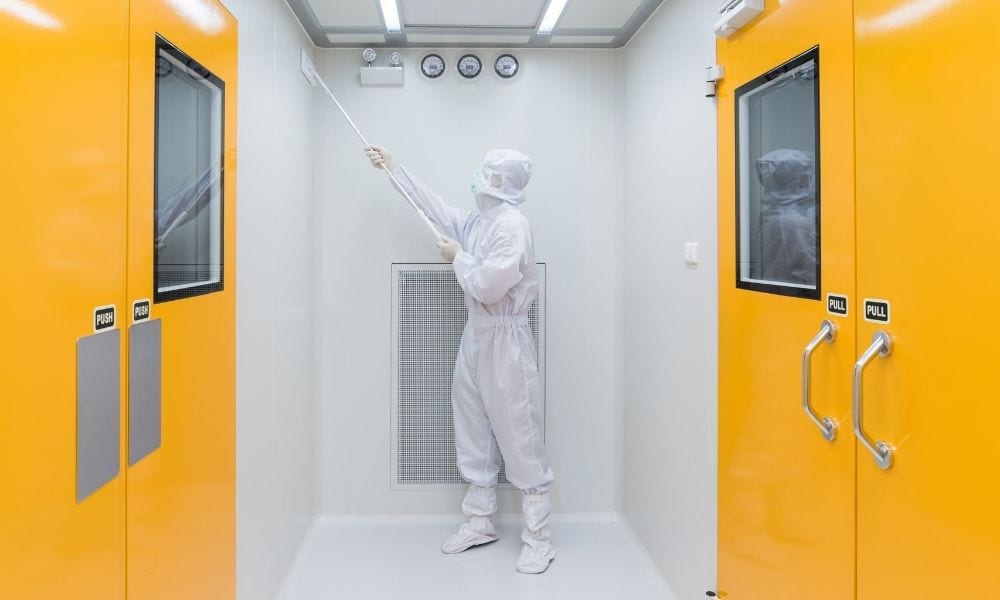

Cleanrooms are environments where even the smallest particulate in the air could compromise a new product or experiment. To protect the area from contamination, it is vital that the cleanroom be equipped with tools and systems that shield it from particulates. Knowing how air circulation works in a cleanroom will help you pick out the proper tools and systems for your professional purposes.
Before air can pass into a cleanroom and go through the laminar or turbulent flow systems, it must first go through an HVAC where it is heated or cooled and humidified or dehumidified. High-efficiency particulate air (HEPA) filters can be added to HVACs to safely filter out micro-sized particles in the air as it enters the cleanroom.
In terms of its filter construction and process, ultra-low particulate air (ULPA) filters are very similar to HEPA filters. Their primary differences come down to efficacy. Simply put, ULPA filters are more reliable, stronger machines with the ability to remove more air particulates by a difference of fractions of percentages. In the rigorous, carefully controlled world of a cleanroom, a ULPA could be just what is needed to make everything match expectations.
Once the air has been filtered, it can be sent through the room either through the turbulent or laminar flow system. Laminar flow is airflow that goes in a straight, unimpeded path. Its goal is to keep all the air, and therefore the particulates, moving in the same direction. A laminar flow system controls how air circulation works in a cleanroom by sending filtered air downward or in a horizontal direction toward the filters located on the walls near the floor or through raised perforated floor panels.
The goal of turbulent airflow is to keep the air in a random motion. It dislodges particulates and moves them toward the exhaust outlets. Particles that may be in the air are driven toward the floor, where they go into filters and exit the cleanroom environment. Its major advantage is it needs a smaller area of filters than laminar flow.
Looking for walking groups near me? Learn how to find local groups, understand the benefits,…
Discover how to choose the right chain sling, from single-leg to quad-leg and adjustable slings,…
Secure your RV with the right storage facility. Explore local options to protect your investment,…
What is milk pasteurization, is it important, and should it matter to you? Here's the…
Learn what happens when you weld materials too quickly or too slowly, and why balancing…
Avoid injury and equipment damage with these five tips, including organizing your garage better, anchoring…